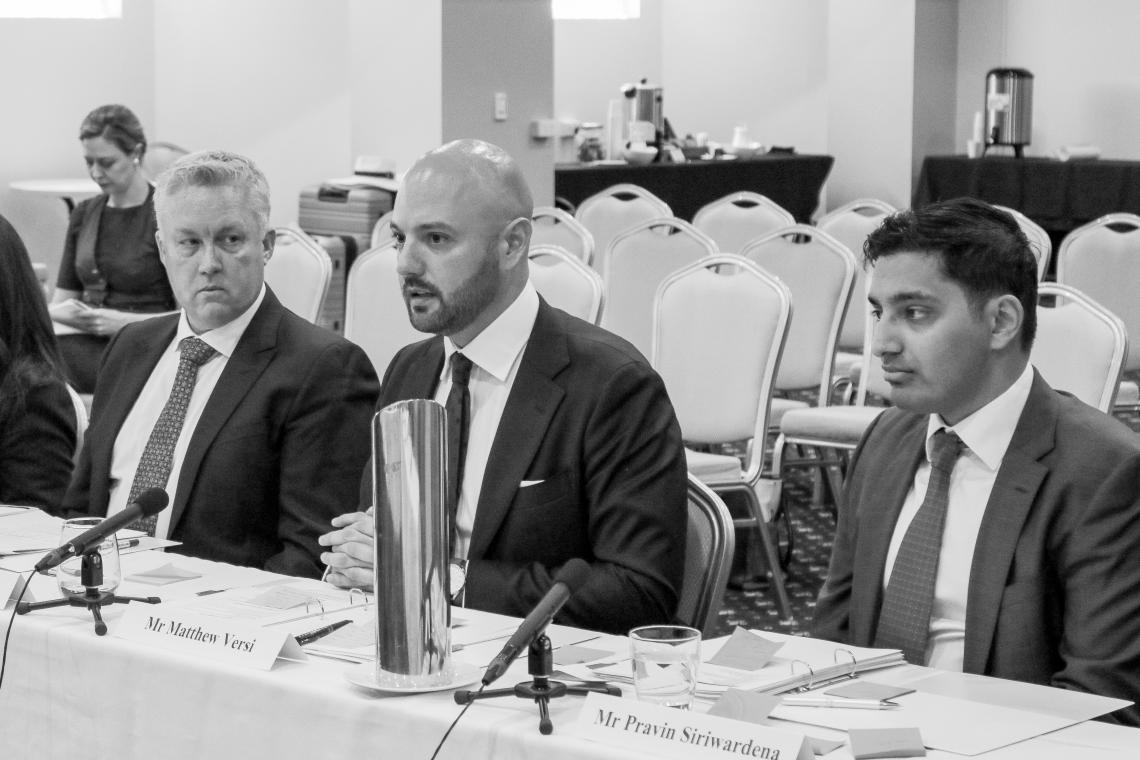
Wholesale investor inquiry
Summary
MTAA were called to appear at the Senate Inquiry into the Wholesale Investor Threshold Test in early October. This Inquiry follows the Review of the regulatory framework for managed investment schemes and the associated proposal to effectively double the current Wholesale Investor Threshold Test.
The MedTech sector already faces significant challenges in accessing early stage risk capital (particularly for seed and early stage ventures), and that changes to the wholesale investor thresholds risk further reducing investment in the sector. The impact of increasing the Wholesale Investor Threshold Test will significantly reduce the number of angel investors able to support early stage start-up and research commercialisation spin-out companies
While recognising the need to protect retail investors, MTAA views the value of total assets under the existing wholesale investor test as an inappropriate proxy for an investor’s ability to conduct effective due diligence and derisk investments into private assets. The MTAA supports the following initiatives to maintain a vibrant angel investor base while enhancing protection mechanisms:
- Maintain the existing threshold levels for the wholesale investor test to prevent shrinkage in the investor pool and reduced capital for investment in MedTech and other early state, privately held growth business across the seven priority areas of the NRF.
- Introduce education standards for investors and certification of angel investor groups which enable syndication for higher risk earlier stage technology commercialisation investments
Background
MTAA were called to appear at the Senate Inquiry into the Wholesale Investor Threshold Test in early October. This Inquiry follows the Review of the regulatory framework for managed investment schemes and the associated proposal to effectively double the current Wholesale Investor Threshold Test. This flows from representations from ASIC and the Financial Services Council:
- The Australian Securities and Investments Commission (ASIC) has argued that the threshold should be indexed to adjust for two decades of inflation, as they are no longer fit-for-purpose in protecting investors due to:
- Inflation, which eroded the value of the current thresholds;
- Growth in house prices boosting the net worth of home owners; and
- The continued growth in superannuation balances following the introduction of compulsory superannuation in 1992.
Indexation would bring the net assets test to around $4.5 million and the gross income test to $450,000 for two consecutive years.
- The Financial Services Council has expressed support for raising the net assets threshold to $5 million, as research by PwC and Data Analysis Australia indicated that in less than a decade, almost one fifth of Australian households would be eligible to buy wholesale products without retail consumer protections
The MedTech sector already faces significant challenges in accessing early stage risk capital (particularly for seed and early stage ventures), and that changes to the wholesale investor thresholds risk further reducing investment in the sector. The impact of increasing the Wholesale Investor Threshold Test will significantly reduce the number of angel investors able to support early stage start-up and research commercialisation spin-out companies. The likely impact on MTAA’s members and network include:
- Reducing the opportunity for mid and later career medical technology executives to support growth businesses through active investment, mentoring and fractional/ interim executive roles
- Reducing the ability for these early stage medtech companies to attract follow on investment from high net-worth individuals and family offices, as the role of these experienced medtech angel investors is often to stabilise a research heavy team by providing commercial focus and acumen.
- Compromise Commonwealth industry development policies, such as the Industry Growth Program and National Reconstruction Fund, by reducing the number of eligible medical device and broader life sciences businesses
- Reducing the opportunity for global medical device companies to engage in the local medtech research and innovation ecosystem through a significant fall in the number of prospective strategic investment and acquisition targets.
While recognising the need to protect retail investors, MTAA views the value of total assets under the existing wholesale investor test as an inappropriate proxy for an investor’s ability to conduct effective due diligence and derisk investments into private assets. The MTAA supports the following initiatives to maintain a vibrant angel investor base while enhancing protection mechanisms. It recommends that:
- Maintain the existing threshold levels for the wholesale investor test to prevent shrinkage in the investor pool and reduced capital for investment in MedTech and other early state, privately held growth business across the seven priority areas of the NRF.
- Introduce education standards for investors and certification of angel investor groups which enable syndication for higher risk earlier stage technology commercialisation investments. This is to ensure wholesale investors have a baseline understanding of investing in higher risk MedTech ventures, typically through experienced based learning models. These education standards can be supplemented through:
- Provision of regular reports into private investment trends which explore historical return and success rates across key medical device sectors
- Creating a mechanism in the Corporations Act to endorse Angel Investor networks to promote effective due diligence through peer based reviews that incorporate subject matter experience and promote syndicated investment and portfolio diversification
- Enhancing s708(10) of the Corporations Act to enable holders of a Wholesale Australian Financial Services License (AFSL) to verify angel investor networks comply with the above investor education and angel investor network protocols
- Maintain the existing threshold levels for the wholesale investor test to preserve synergies with other existing activities (ESIC; s 708 of the Corporations Act 2001) to sustain investment in early stage, privately held MedTech businesses commercialising world class research
- Withdraw the proposal for taxing unrealised capital gains over $3 million to encourage sustained investment in MedTech.